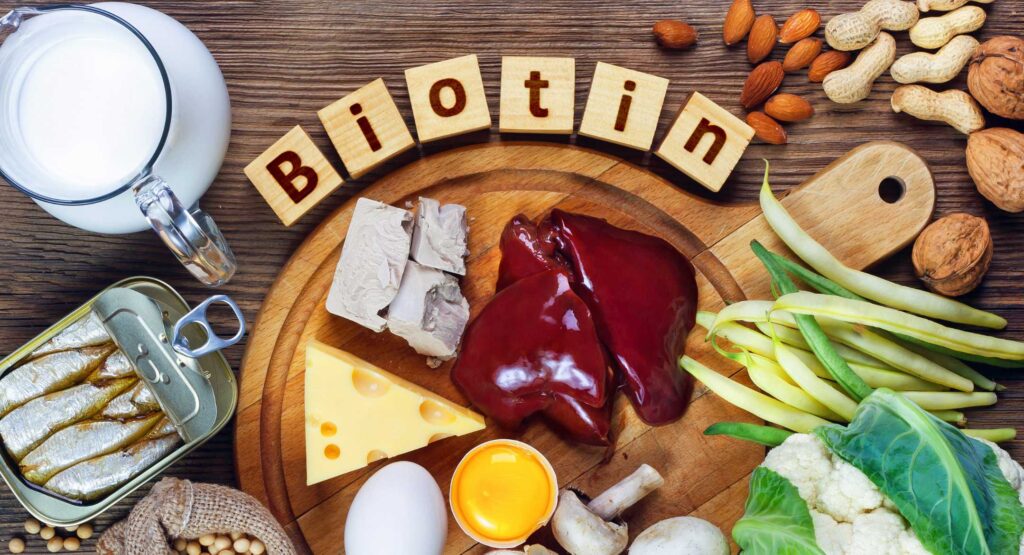Biotin
TYPE OF INGREDIENT
B-complex vitamin
COMMONLY FOUND IN
Skin, hair, and nail supplements
WHAT ARE THE BENEFITS OF BIOTIN?
Studies have shown that biotin supplementation can be helpful in those who have underlying conditions related to poor hair or nail growth. However, biotin deficiency is rare in healthy individuals. Currently there is limited evidence supporting the use of biotin supplementation for skin, nail and hair health in healthy individuals.
WHAT IS BIOTIN ?
Biotin, also known as Vitamin B7 or Vitamin H, is a water-soluble vitamin. It is involved in metabolic processes related to the conversion of proteins, fats and glucose into energy in the body, as well as cell signaling. It is found in many foods such as meat, dairy products, nuts, seeds, fish and eggs. It is also produced in the body from intestinal bacteria.

IS BIOTIN SAFE FOR ALL SKIN TYPES AND TONES?
There have been reports linking biotin supplementation to the development of acne. Therefore, individuals with acne-prone skin types should exercise caution when considering biotin supplementation.
CONTRAINDICATIONS
Biotin supplementation has the potential to alter laboratory tests, specifically thyroid function tests and troponin, a cardiac enzyme. Other possible side effects of biotin supplementation include medication interactions and reduced absorption of other vitamins.
Sources:
Patel DP, Swink SM, Castelo-Soccio L. A Review of the Use of Biotin for Hair Loss. Skin Appendage Disord. 2017 Aug;3(3):166-169.
National Institute of Health https://ods.od.nih.gov/factsheets/Biotin-Consumer/
Koehler VF, Mann U, Nassour A, Mann WA. Fake news? Biotin interference in thyroid immunoassays. Clin Chim Acta. 2018 Sep;484:320-322.
Food And Drug Administration, Published June 21, 2022.https://www.fda.gov/medical-devices/in-vitro-diagnostics/biotin-interference-troponin-lab-tests-assays-subject-biotin-interference

